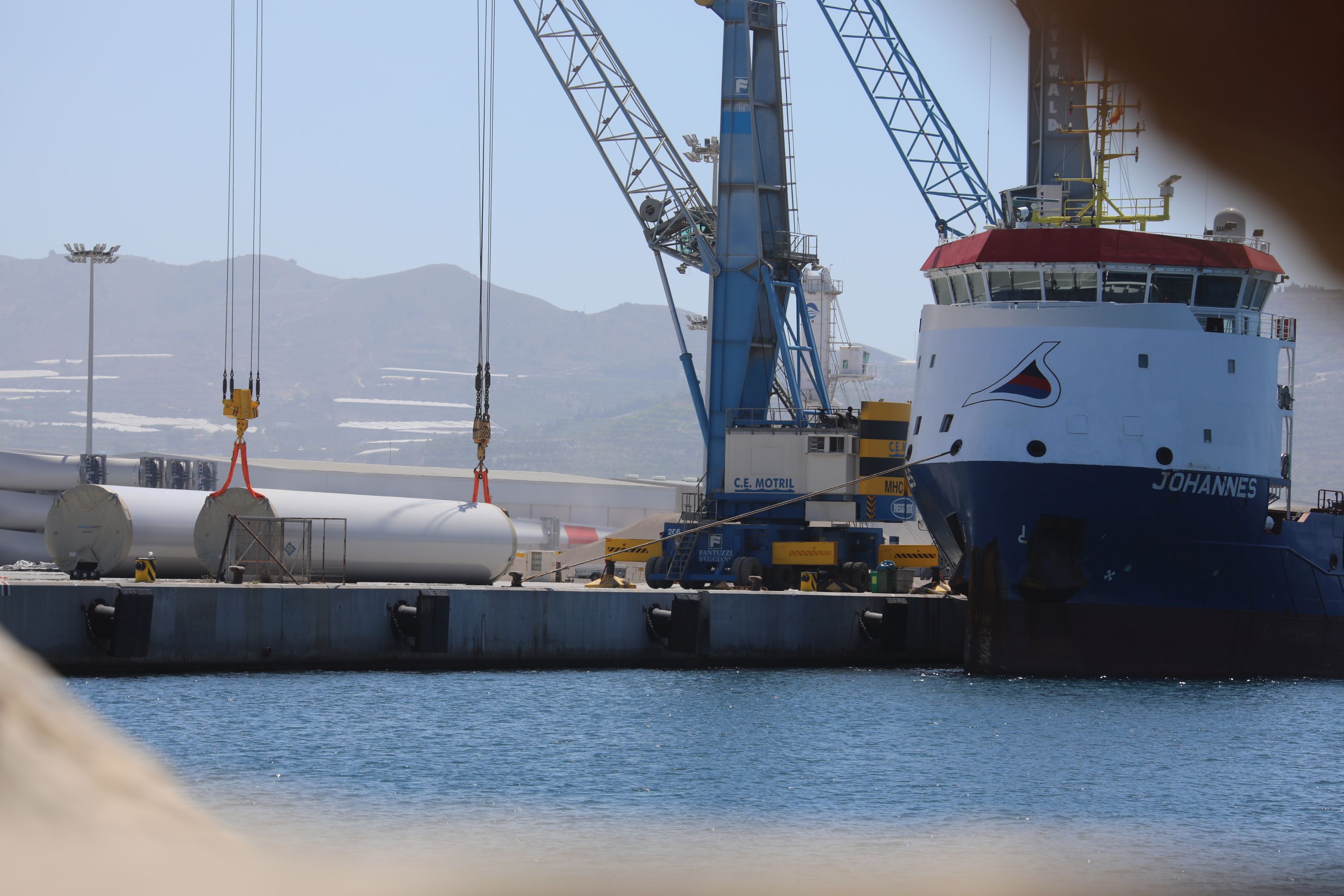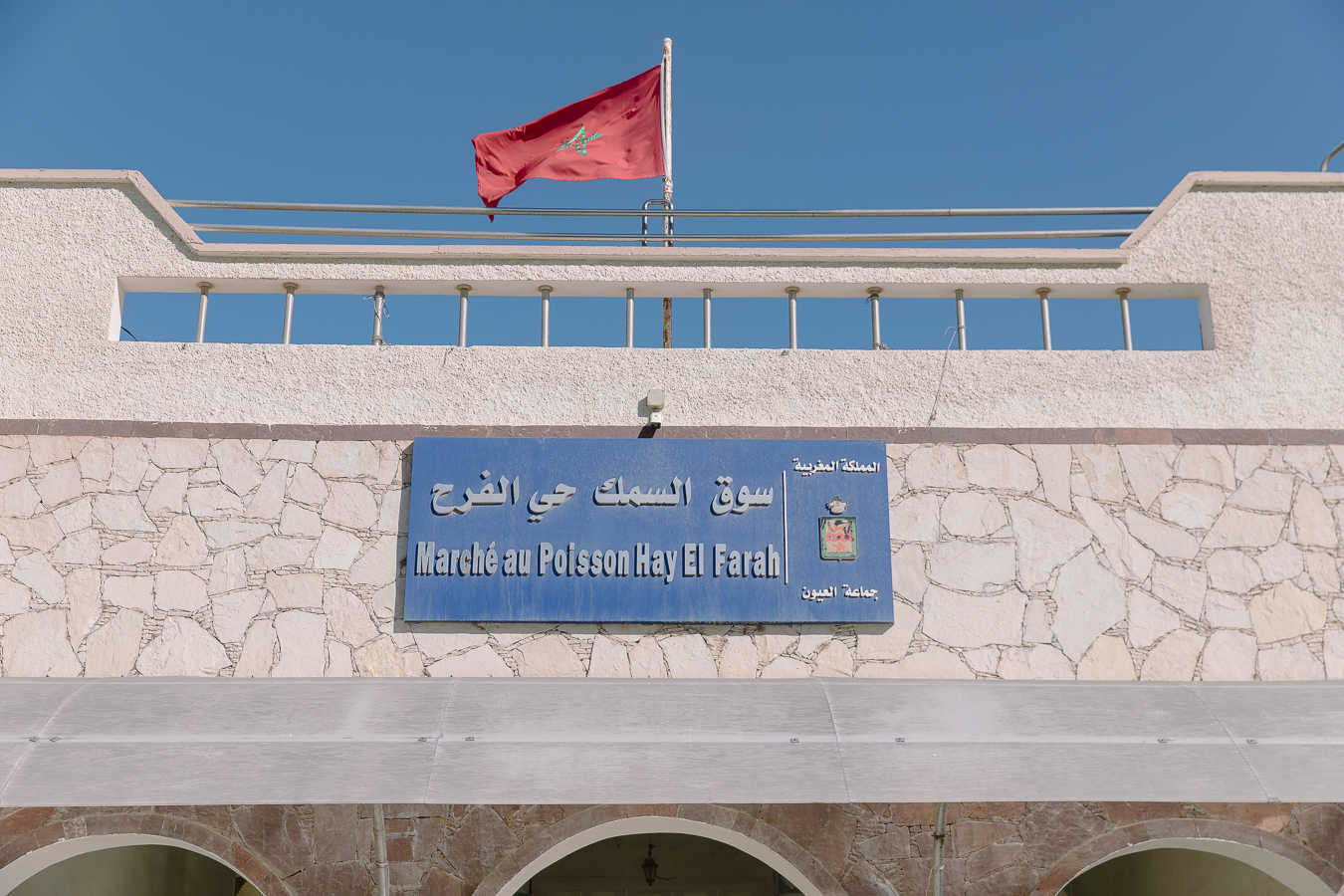Conference on Western Sahara plundering

Hundreds of foreign activists attend special conference on Western Saharan natural resources in the refugee camps in Algeria. UPES, 10 April 2009.
Download presentation here by Polisario representative Lih Beiruk.
Download presentation here by Polisario representative Lih Beiruk.
Published 11 April 2009
Hundreds of foreign activists attend special conference on Western Saharan natural resources in the refugee camps in Algeria. UPES, 10 April 2009.
Download presentation here by Polisario representative Lih Beiruk.
Hundreds of foreign activists attend special conference on Western Saharan natural resources
UPES
By Timothy Kustusch
10 April 2009
In the meeting hall of the National Union of Saharawi Women (UNMS) in the 27th of February Saharawi refugee camp, over 200 international visitors gathered to listen to a special presentation on natural resources in the Western Sahara, presented by Lih Beiruk, special representative of the Saharan Arab Democratic Republic (SADR) to the Netherlands.
The presentation, given in Spanish, focused upon the exploitation by Morocco of the plentiful fish and phosphate resources that define the natural wealth of the Western Sahara. Lih insisted that the main impetus behind Morocco’s continued occupation of two-thirds of the territory of the Western Sahara was the influx of income provided by exports from the territory.
Since Morocco’s invasion in the 1970s, it has benefited immensely from that wealth. The Moroccan use of the resources, however, has been illegal since the very beginning, according to Lih.
"Near Bu Craa [in the Western Sahara], a Spanish company had constructed a 107 km-long conveyor built, the longest in the world," said the SADR special representative. "In a hidden passage of the Madrid Accords [the tripartite agreement signed by Spain, Morocco and Mauritania in 1975], Spain handed over 65 percent of the project to Morocco."
Lih clarified that according to UN General Assembly resolutions, the International Convention on Human Rights and the International Pact on Social and Economic Rights – among others – the exportation of natural resources of a colonized territory without direct benefit to the inhabitants of the territory is strictly forbidden.
In the presentation, Lih pointed out that today, over 1,700,000 tons of phosphate are extracted from the Western Saharan Bu Craa mines each year, and almost 306 million tons of fish are caught and exported from waters around the ports of El Aaiun. The port city is currently the biggest exporter of sardines in the world.
Lih accused the entire international community of engaging in illegal economic pacts with Morocco, but aimed many of his allegations at the European Union.
"The European Union claims to be a great defender of human rights," he fired,"but it continues to deny the right of the Saharawi people to benefit from the natural resources of their own land."
Responding to a question from the audience as to whether the international community would ever support the Saharawis’ right to their own territory, Lih expressed his hope that with a new US President, the status quo may eventually be overturned.
"We are waiting and hoping that the US, especially with Obama and his slogan of ‘Change’, will recognize the rights for which we are fighting," said Lih.
The conference closed with a brief documentary by the Western Sahara Resource Watch, a Norwegian NGO geared towards ending the illegal exploitation of the natural wealth of the Western Sahara by making public the activities of companies and governments that do so.
Dollars and sense
In an exclusive UPES interview after the conference, Lih discussed a few of the conference’s topics in more detail.
"Over 10 percent of Morocco’s phosphate exports and well over half of its fish exports come from the Western Sahara," he pointed out.
When asked if Morocco was benefiting too greatly from the Western Sahara to ever agree to allowing the Saharawis to hold their UN-supported referendum on self-determination, Lih denied that this was a legitimate concern.
"It costs the Moroccan crown over 2 million euros per day to maintain the 160,000 troops it keeps in the Western Sahara," explained Lih. "So they will be saving money when they eventually have to give back the territory to the Saharawis.
"But yes, Morocco’s number one reason for holding onto the Western Sahara is economic exploitation of its resources," he continued. "The second is to keep the army as far away from the government as possible. Throughout history, the army has been the only force who has challenged the monarchy, so the crown tries to keep the army occupied in the Western Sahara."
Morocco’s economy, Lih argued, is based entirely on tourism and the drug trade. Meanwhile, the Western Sahara has a variety of resources, including phosphate, fish, sand, gold, iron and even oil, reserves of which have been mapped out in the northeast region of the territory and on the continental shelf off of Western Saharan shores.
Neither rain nor sand nor heat nor...
On the third day of informational sessions for the visiting activists, rain clouds, oppressive heat and a sandstorm threatened to cancel the conference, which was originally scheduled to be held outside in a gigantic tent.
But the session was moved indoors and was given before a packed house. All of the 150 chairs and every bit of floor space were occupied by foreigners and Saharawis alike, craining their necks to take in all of the economic data showing Morocco’s illegal economic ventures in the Western Sahara.
When the conference closed, the participants migrated outdoors to share cups of tea with the representatives of the UNMS.
News
New report: Certified occupation
International certification standards embellish Morocco’s controversial trade with fisheries and agricultural products in occupied Western Sahara, new report documents.
16 December 2025
Certification giant SGS points fingers elsewhere
SGS blames everyone else for mistakes on MarinTrust certificates it had issued to Moroccan companies in occupied Western Sahara.
15 December 2025
New report: Greenwashing Occupation
Out now: WSRW today publishes a new report outlining the massive - and deeply problematic - renewable energy projects that Morocco is developing in occupied Western Sahara.
11 December 2025
GMP+ does not check if “sustainable” fish is legally caught
The world’s largest certification scheme for “safe and sustainable animal feed” does not check whether its certified fish feed companies source from illegal fisheries in occupied Western Sahara, where catches violate the Saharawi people’s right to self-determination.
05 December 2025



